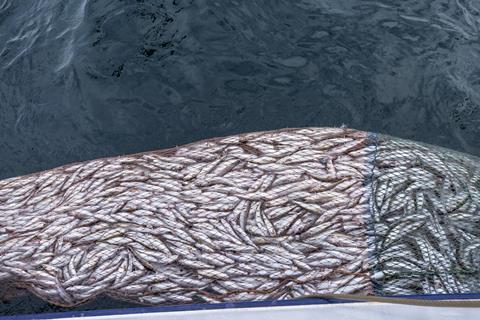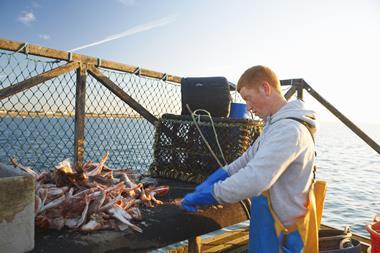
Ministers are being urged to implement a plan to end overfishing after a new report found that half of the UK’s top 10 caught fish are under threat.
Stocks of North Sea cod, North Sea herring, North east Atlantic mackerel, southern North Sea edible crab and North East Atlantic blue whiting were found to be either at critically low levels or fished beyond sustainable limits, according to research by marine charity Oceana UK.
The report, Deep Decline, The State of UK Fish Populations, assessed 105 stocks – 83 of which are shared with the EU and other Northeast Atlantic coastal states – since Brexit.
Only 41% of the analysed stocks were found to be healthy.
Seventeen (one-sixth of all UK commercial stocks) were severely depleted yet continued to be unsustainably fished. Meanwhile, over a quarter of all UK commercial stocks were critically low, with the same percentage currently being overexploited, the findings revealed.
In addition, mackerel, the UK’s most landed fish, was on track to join the “worst-performing”, the report cautioned.
Despite repeated warnings from scientists, ministers continued to set total allowable catches for many stocks above sustainable levels, Oceana UK claimed. This risked the collapse of these populations and threatened the livelihoods of coastal communities, as well as the health of UK seas, it argued.
“Overfishing is not an unavoidable tragedy – it is a political choice,” said Hugo Tagholm, Oceana UK’s executive director. “Ministers ignore the science time and time again, and our seas are paying the price.”
Read more: North east Atlantic mackerel will ‘struggle to recover’, new data reveals
Regionally, the Irish Sea was found to be the most severely affected, with overfished stocks rising from 27% in 2020 to 41% today.
However, the report identified that recovery was possible when “science-based” decisions were made.
The UK’s best-performing stocks –— including West of Scotland haddock, Western Channel sole and North Sea plaice – have remained healthy and sustainably fished since 2020, the findings showed. This was largely due to catch limits set in line with scientific advice, the report suggested.
In stark contrast, catch limits for three of the five worst-performing stocks have been set above scientific advice for five consecutive years, Oceana UK claimed.
“These results highlight the gross mismanagement of the UK’s greatest natural asset – its seas,” said Professor Callum Roberts, professor of marine conservation at the University of Exeter. “The government has the best fisheries science at its fingertips, and even when data are scarce, the course to restoration is clear.
“Our seas are already at risk from oil, sewage and agri-chemical pollution; habitat destruction; and the climate crisis. We need to move away from brute extraction, regardless of collateral damage and set a new course to make fishing fair, evidence-based and above all sustainable, so that it works within nature’s limits.”
Time for government action
The report urged the UK government to set and enforce all catch limits in line with science by the end of 2025, with buffers to support stock recovery.
Other recommendations included a legally binding deadline to halt overfishing by the end of 2026, the publication of an annual parliament-scrutinised audit and a fair deal for fishers needing support to adjust to lower catch limits and sustainable practices.
Defra said it was working with the fishing industry to promote British seafood, manage stocks sustainably and had also announced a brand new £360m Fisheries and Coastal Growth Fund to drive growth in the sector.
“We are committed to restoring our stocks to sustainable levels and have made significant progress over the past five years, while continuing to support the long-term viability of our domestic fishing industry,” the Defra spokesperson said.
The findings come a week after the International Council for the Exploration of the Sea, an independent body that advises governments on managing fish stocks, found that the Northeast Atlantic mackerel population is so depleted that there needs to be a 77% reduction in catches in 2026.



















No comments yet